Lifestyle
Turning Our Losses Into Gains
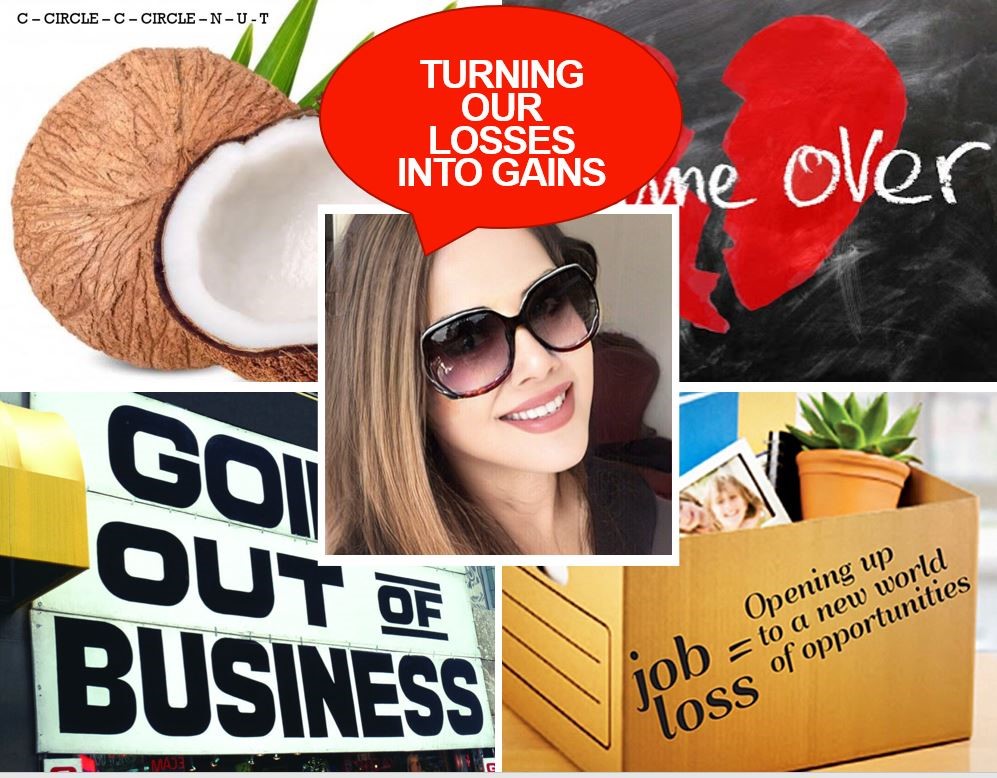
(Photo supplied by writer)
There comes a time in our lives when we lose someone or something we can’t live without, and our hearts will be shattered into pieces. In life, there’s always good news and bad news. The bad news is that we never completely get over the loss of our beloved. The good news is: they live forever in our broken hearts, and we always come through. Losing someone we love or something we need in our lives is like having a broken leg that never heals perfectly. It hurts when the weather gets cold, but nevertheless we still learn to dance with the limp.
We live in a world of constant changes and in a world of gains and losses; of successes and of failures; of happiness and sadness. There are many types of losses: death of a loved one; job loss; relationship breakup; death of a pet; loss of friendship; financial loss; loss of family structure; and even loss of identity. How can we walk away from our failures into successes? How can we switch our lives of scarcity into lives of abundance? How do we turn our losses into gains?
In the spirit of being like-minded human beings, Maria in Vancouver has shared her experiences about her losses and how she turned these into gains.
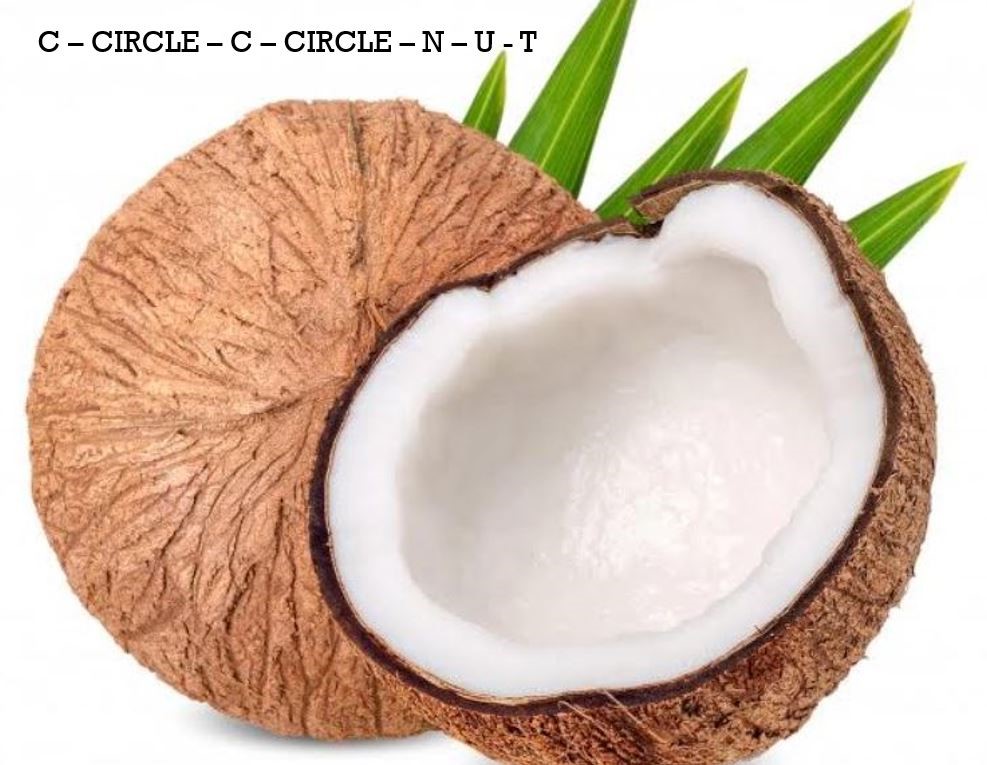
(Photo supplied by writer)
Loss of a loved one. For the first twelve years of Maria’s life, she was raised by her grandparents from her mother’s side. Maria’s grandparents were the parents she knew as a toddler and as a young child. She spent her formative years with her grandparents. Maria went to Kindergarten at Montessori OB in Leon Guinto St. in Manila. Her grandparents used to drive her to school in the mornings. Everyday, her grandfather would ask Maria: “How do you spell coconut?” The ever precocious 6-year-old Maria would answer with much confidence: “C – CIRCLE – C – CIRCLE – N – U – T!” When Maria turned 23, her grandfather’s health deteriorated due to diabetes. At that time, Maria was back in Manila from London. Maria was at her grandfather’s bedside in the hospital everyday. Maria saw his suffering and pain. Maria fed her grandfather his favourite dessert — “Buko” (coconut) salad — before he died. It was the first time Maria felt what death in the family feels like. She felt beyond sad at the thought of not being able to see her grandfather anymore. Moreover, she felt sad for her grandmother — her grandfather was her grandmother’s first love. How Maria coped with her loss: Maria spent a year living at their beach resort in Batangas after her grandfather died. She taught impoverished children every day. She fed them and gave them baths every day. In the afternoons, she swam with the children in the ocean. After a year, Maria went to Vancouver and continued with her education. She graduated an A+ student with a diploma in Hospitality and Tourism Course. Before her grandfather died, Maria promised her grandfather that she will turn her life around for the better — and she did. Moral experience: People lose people, we lose beloved ones in our lives as we’re constantly growing and changing. That’s life — it’s always about changes and a lot of that is loss. It’s what we gain from that loss that should motivate us to turn our lives around for the better. Our loved ones may leave us physically, but they live on in our hearts forever through their memories and for inspiring us to be our better versions of ourselves.
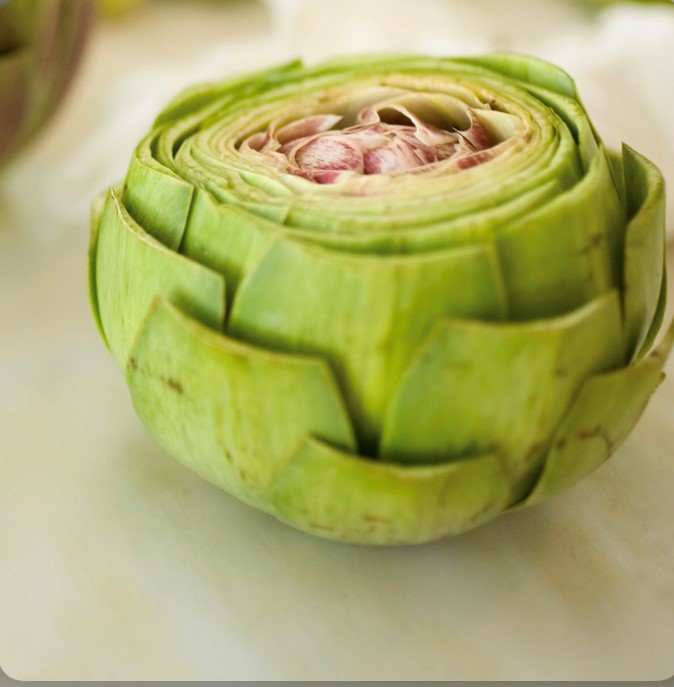
(Photo supplied by writer)
Loss of a dream life. At the age of 18 and living in London, England — as a debutante — Maria’s life is the stuff fairy tales are made of. She was exposed to England’s eligible bachelors. Maria’s dream at that age was to settle down, marry well, live in the countryside, and raise five children. Maria fell head over heels in love with a “Greek God” (a scion of a Greek shipping tycoon based in London). On their fifth date, the Greek God took Maria to dinner at the exclusive Annabel’s (an elegant for private members only club in London). For starters, the Greek God ordered Imperial Osetra caviar with mini pancakes. Maria ordered artichoke with butter Parmesan sauce. At 18, Maria never had artichokes before. She asked the Maître D’ for a steak knife and proceeded to slice the artichoke leaves one by one. Maria ate the whole artichoke and left nothing on the plate. The Greek God was totally astounded! He had never seen anything quite like it! When their server came to collect their dishes, the waiter had to look under the table to double check — if by chance — the artichoke had rolled over under the table. The Greek God told the waiter: “Mademoiselle was absolutely famished; she ate the whole artichoke!” Suffice to say, that was the last time Maria saw the Greek God. She was totally heartbroken. She was so heavy-hearted; she never ate artichokes ever again in her life. Who would have thought that an artichoke would be the catalyst to a fairy tale love story that ended in tatters? How Maria coped with her loss: Maria cried for days. Her only consolation was that her teeth remained intact — even after consuming the whole artichoke! Eventually, Maria settled down with Mr. D, a half-English and half-French scion of a French nobility family. Unfortunately, the union only lasted for three years. Moral experience: Maria learned that fairy tales don’t exist. Maria learned that Prince Charming doesn’t exist and that you don’t need one to rescue you. Only yourself can rescue you. The only person you can depend is yourself. You create your own destiny and eventually, your own happily ever after. Above all, steer clear of artichokes — they can be hazardous to your life!

(Photo supplied by writer)
Loss of a beloved pet. Maria loves dogs! Maria had a white morkie — Miss Mopsy — when she was with her first serious partner, Mr. D (from a half-English and half-French nobility family). Maria treated Miss Mopsy as if she was her child. Maria and Miss Mopsy had a special bond. Miss Mopsy taught Maria what it’s like to be a mother. In turn, Maria nurtured Miss Mopsy and spoiled her with toys, healthy food, and affection. Maria watched Miss Mopsy grow from a one-month old puppy to a grown three-year-old. Tragically, just as her union with Mr. D ended, Miss Mopsy died of illness. Maria was devastated and inconsolable. How Maria coped with her loss: Maria allowed herself to grieve Miss Mopsy’s death – she took her time in mourning. She made sure that Miss Mopsy had a fitting ceremony to honour her burial — sending her off in a woven basket filled with flowers and candles as the sun sets in Manila Bay. Up to this day, Miss Mopsy remains irreplaceable. Moral experience: Our pets may not be our whole lives, but they certainly made our lives whole. Miss Mopsy’s death taught Maria: the risk of love is loss, and the price of loss is grief. But the pain of grief is only a shadow when compared with the pain of never risking love.
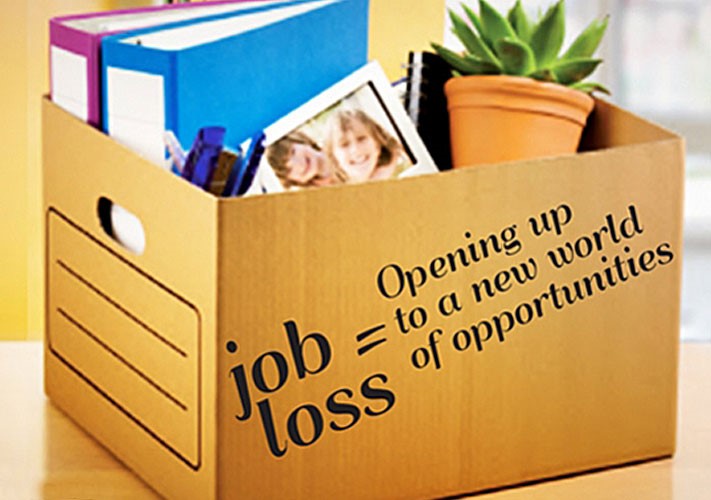
(Photo supplied by writer)
Loss of a job. Fast forward two decades later, Maria is based in Vancouver and is happily working as an Assistant to the CEO of a top private equity firm. Maria’s boss is one of Vancouver’s movers and shakers in the society. Unfortunately, after six months into her role, the CEO’s wife decided that Maria was not the right fit for the role. The CEO’s wife didn’t like the way Maria looked. Maria found herself fired from the job. It was the first time Maria got fired from a job — for the way she looks. Maria didn’t fight it. Maria always chooses her battles. How Maria coped with her loss: Maria bounced back from this loss by calling her agent and asking her to set her up with another job ASAP. As a single mom, Maria can’t afford to be out of job for long. Within a week of being fired (unjustly) from her job, Maria got an even higher paying job assisting a female CEO for a non-profit organization. Moral experience: Life is full of setbacks, failures, and disappointments. And yes, injustice. However, none of these things can hinder you permanently. We have the power in us to overcome what life throws at us. There is nothing more powerful than a determined mind. Surround yourself with people who can add to your life. Don’t ever give up, cave in, or stop believing that anything is possible in life. It’s not over until you overcome and win!
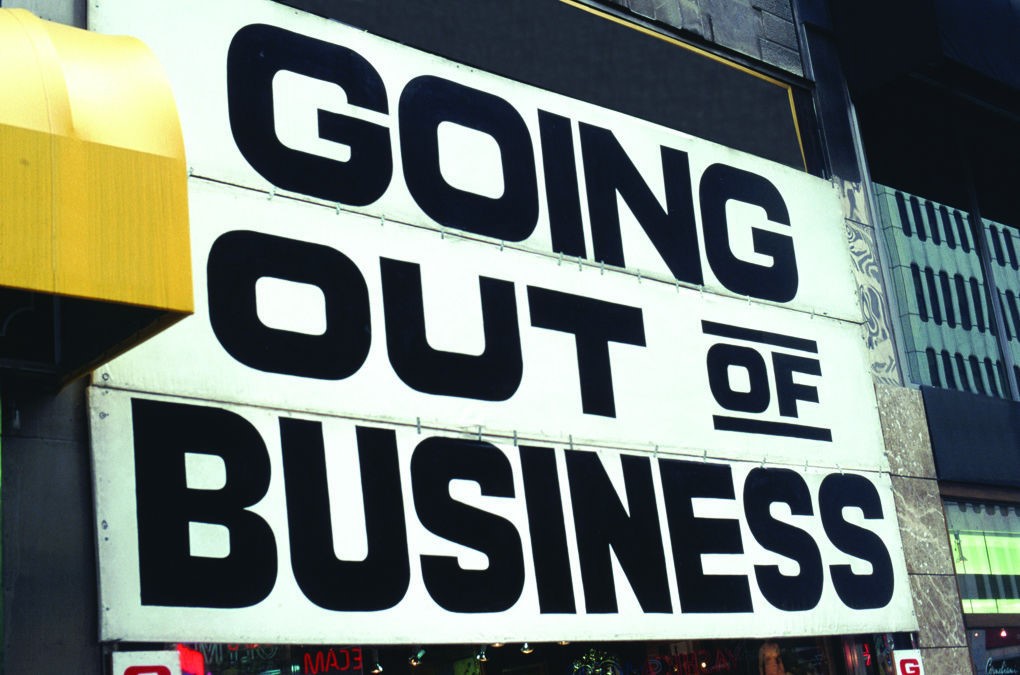
(Photo supplied by writer)
Loss of a business. In 2017, Maria’s family ventured into the restaurant business. It was not an ordinary business — it was a family dream. It was all about promoting Filipino cuisine to the Western world. Maria’s family and herself totally believed that the next cuisine to be discovered is Filipino food. Japanese, Thai, Chinese, Vietnamese, and Indian food made it in the global scene — surely there’s no reason why Filipino cuisine can’t make it. It has to be the next big thing. Unfortunately, in business, you need a lot of experience. You need to know what you’re getting into to be able to withstand the challenges that comes with it. Due to the rising expenses, the business couldn’t cope with it. It did well but not enough to survive Vancouver’s expenses. It closed down after two years. Maria closed the restaurant chapter with a heavy heart — the overhead expenses were too much. How Maria coped with her loss: The first thing Maria learned from this loss was to avoid the blame game. It was no one’s fault. Everyone did their best to their ability. Maria learned not to take it upon herself too seriously. Of course, she was deeply sorry for the financial loss, but in her heart, she knows, she did her best. Moral experience: Sometimes it feels like the end of the world when we fail. In some cases, these failures are more extreme than others especially when money is involved. That being said, putting your situation in context with the grand scheme of things is relieving. Failure is a part of life and as difficult as it seems in the moment, everything is going to end up being alright. Moving on is necessary but asking yourself why you failed is also important. Learning from your mistakes and how you can be better next time is one of the hardest parts of failing.

(Photo supplied by writer)
Loss of friendship. Maria and her best friend were childhood friends and practically grew up together. However, Maria went to secondary school in London, England during her teenage years. Her best friend went to Vancouver for her secondary school. Eventually, they met up again when Maria returned to Vancouver for good in 2007. Maria and her best friend realized that they grew apart. They’ve turned into two different women. Maria’s best friend had difficulty separating her personal life from her work life — which made Maria’s best friend more domineering and too bossy. Maria’s best friend always wanted to have the upper hand in their relationship. On the other hand, Maria became extremely reactive, sensitive, angry, and resentful. Worse, Maria discovered that her best friend always talked negatively about her behind her back to people they both know. Their friendship had become toxic and filled with unnecessary drama. Maria ended up cutting ties with her ex-best friend. How Maria coped with her loss: Maria filled the void with something new. She simply moved on with her life without her ex-best friend. She made new friends. She focused on her new career. She focused on her son and his university. She focused on her Significant Other. Moral experience: Maria took to heart the words written by best-selling author Don Miguel Ruiz. In his classic, “The Four Agreements,” Don Miguel Ruiz writes, “Even when a situation seems so personal, even if others insult you directly, it has nothing to do with you. What they say, what they do, and the opinions they give are according to the agreements they have in their own minds. If you do not take it personally, you are immune in the middle of hell.” Indeed, Maria liked that! Remember this: you are not everyone’s cup of tea. Everybody isn’t your friend. Just because they say they have your back, doesn’t mean they won’t stab you in it. People can pretend well, jealousy sometimes doesn’t live far. It is a must that you know your circle well.
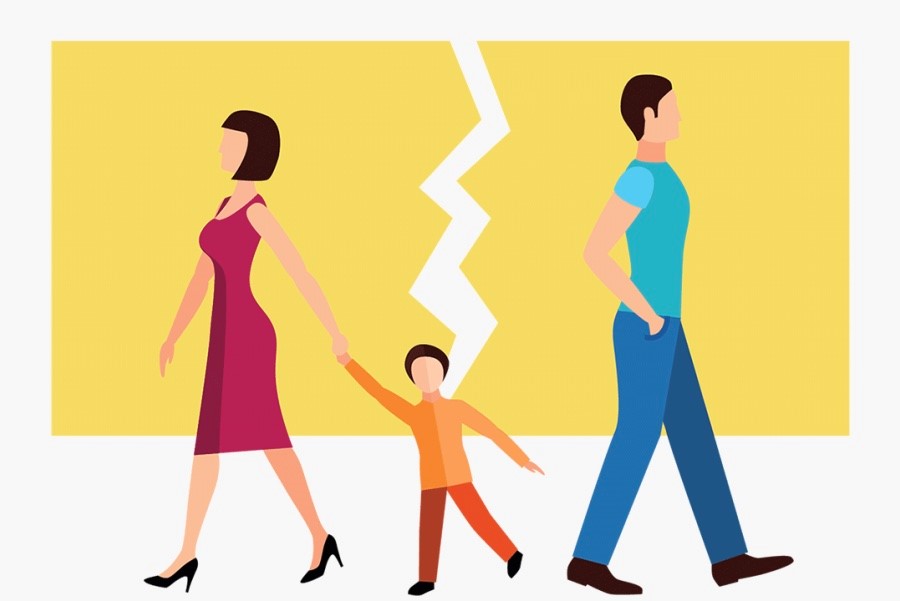
(Photo supplied by writer)
Loss of family structure. When things didn’t work out between Maria and the father of her son — Maria and son uprooted and went back to Vancouver for good. It was not easy for Maria’s son to lose a family structure. It was even more painful for Maria because she knew firsthand what it’s like to lose a family structure. How Maria and son coped with their loss: Maria has always been honest and transparent with her son. Maria’s son asked her why the union didn’t work and she explained why. Maria never badmouths her son’s father. Maria and her son moved on and forged a new beginning in Vancouver. Moral experience: The reality is Maria’s son and Maria don’t do happy endings — they only do real endings. They are both hardwired to expect the next interruption, or disappointment, or broken promises. Maria taught her son that there is no such thing as a broken family. She taught her son about this fact: family is family. It is not determined by blood, by marriage certificates, divorce papers, and adoption papers. The truth is: families are made in the heart. That’s all that matters.
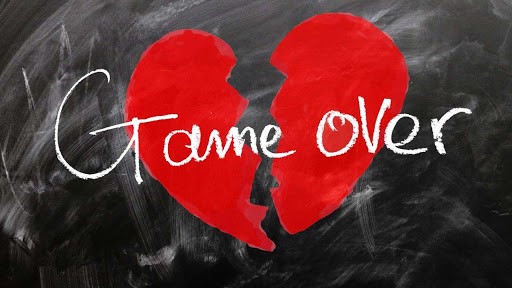
(Photo supplied by writer)
Loss of a relationship due to a breakup. In 2017, Maria started to date again, and she met Mr. B — a corporate lawyer. They dated for a year. Maria fell for Mr. B, but he was commitment phobic. Even after a year of dating, he refused to take down his dating profiles. Also, Maria noticed that it was always her who paid for their dinner dates. The final straw was when Mr. B went for a vacation to Colombia with a male buddy. When Mr. B returned to Vancouver, Maria accidentally saw photos of Mr. B with Colombian women in compromising positions. How Maria coped with her loss: Maria ghosted Mr. B. and blocked him from her phone for good. She went on a blind date that was arranged by a friend and ended up meeting Mr. Right. Moral experience: Cheating is a choice, not a mistake. Sure, breakups hurt, but losing someone who doesn’t appreciate and respect you is actually a gain — and not a loss. Sleeping alone is better than sharing your bed with someone who share their bed with someone else when you’re not around.
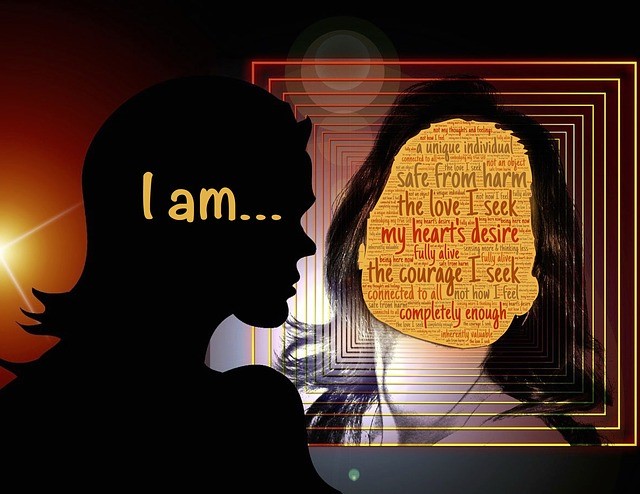
(Photo supplied by writer)
Loss of self identity. Maria had built a life in Manila from the mid-90’s through mid-2000’s. She worked as a hotelier and lived a comfortable life. In 2007, she made a life changing decision — to uproot her 9-year-old son and herself from Manila to Vancouver. The first three years in Vancouver proved to be difficult for both Maria and her son. They had to learn a new culture, they had to learn how to blend, adapt, and integrate in the new culture and their new country. How Maria and son coped with their loss of self identities: Eventually, Maria and her son learned that life might be difficult for a while, but they learned to tough it out because living in a new country is one of those things that everyone should try at least once in their lives. By doing so, Maria and her son learned to accept and thrive in their new adopted home and realized how grateful they are for this wonderful opportunity. Moral experience: Making a huge life change is scary but let this sink in: change is indeed scary — but REGRET is even scarier. What do you have to lose? Jump now, take the plunge, don’t look back, and find your freedom. Maria and her son eventually found their freedom in Vancouver. More than that, Maria and her son continue to thrive and survive in Vancouver — they both gained better versions of themselves. Canada has been a generous and welcoming country to them and they are forever grateful and indebted to Canada for the acceptance.
Moral of this article: Simply put, there
are no gains without pains. Let me end this article with wise words from the
great Martin Luther King and may his words resonate with you: “When our days
become dreary with low hovering clouds of despair, and when our nights become
darker than a thousand midnights, let us remember that there is a creative force
in this universe, working to pull down the gigantic mountains of evil, a power
that is able to make a way out of no way and transform dark yesterdays into
bright tomorrows. Let us realize the arc of the moral universe is long but it
bends toward justice.”





















